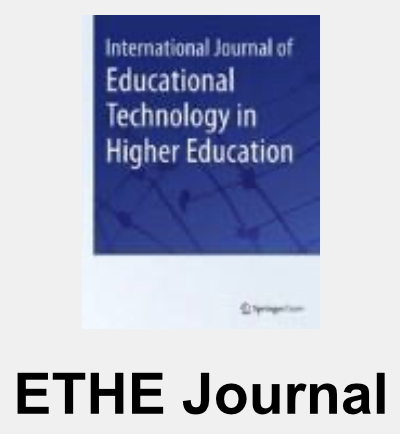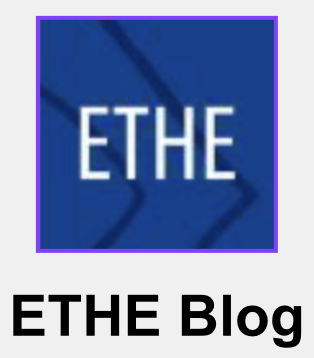Fair learning analytics: design, participation and transdiscipline within the technostructure
Webinars’ cycle “Fair Data Cultures in Higher Education”
July 6th – 3:00 – 5:00 p.m. (GMT + 1) / 11:00 a.m. – 1:00 p.m. (GMT – 3)
Subscribe here [The webinar space is protected by a password, which we send only to the people that register. This is the reason why we require registration].
by Juliana Raffaghelli
Fair learning analytics: is it an oxymoron?
These days we have been bombarded with information on how to teach online: in other words, distance didactics, or better said, “emergency distance learning”.
The initial enthusiasm of sorting out the problem of the educative continuity through technologic mediation has been followed by a progressive understanding of the unquantifiable difficulties related to it: lack of competence on both teacher and student side, lack of facilities and ergonomic space at home, lack of planning for an efficacious implementation of distance didactic sequences.
Faced with this difficulty, many were allured to find immediate technologic solutions encouraged by the education “greats”, such as Google Classroom, as it is possible to observe on the announce “Teach from Home”. Williamson, Eynon and Potter (2020) have pointed out in their article on the “pandemic pedagogies” that other platforms provided by Pearson, Amazon Education and Microsoft Teams were up to become “edubusiness” products chosen by schools, also at a negotiation level with the education ministries and the regional offices of education. The case on the recommendation to use Google Suite is the most evident one. Moreover, it has been noticed a peak in the use of videoconference softwares such as Zoom, which became the most popular product at all levels and among all users. At a university degree, in spite of the fact that Higher Education institutions were already better prepared for distance learning, the solutions during the emergency exposed many teachers to the conflict provoked by the technologies to use and in which situations. All this without considering the numerous support offers in the Cloud, which many universities are already using, in particular Open LMS from Blackboard and Google Suite.
The above-mentioned offer has opened a heated debate, which precisely tackles the theme that is being discussed in our Webinar series “Fair Data Cultures in Higher Education” and that has been accurately commented in the article cited above. This offer has been considered one of the four problematics of the “pandemic pedagogies”. With the student’s capture within the virtual learning environment, the data tracking is continuous and massive.
The need for reflexion and the need of work in order to create the correct solutions, in which the participants of the institutional system (teachers and students) could see with transparency how is used something which indeed belongs to them, becomes a challenge: their digital identities, their behaviour, emotions and ideas collected in their forced presence within the institutional cyberspace. Likewise, they should be spurred to empower themselves by deciding what kind of activities based on the intensive use of data and algorithms could be designed to the vantage of the interest bearers within an educational university community.
Much has been emphasised on the role and the importance of the learning analytics which can be achieved from the data capture mentioned before. Nonetheless, there has also been much criticism with respect to what analytics promote: the usability of the pedagogic platforms, especially when it comes to the actual empowering rather than mere institutional control.
Finally, the struggle is to critically bring forth the invisibility of the technostructure rather than being naively deceived by the technologic siren song: the promise is that of providing solutions which can fill the skill gap, understanding and knowing teachers and students leading them to an informed process of teaching and learning.
In this strive for reflection we have invited three women with different trajectories, with whom we are going to open a space for conversation beginning with their own experiences and studies.
The webinar will be held on July 6th and will start at 3:00 p.m. GMT + 1 and 11:00 a.m. GMT + 3 and it will be divided in two parts.
“Warm-up” Workshop
Exploring possible worlds. Use of the Open Source software and data literacy
In this space professor Caroline Kuhn at the University Bath Spa (UK) will talk of her results from her doctoral research on the use of alternative softwares. In particular, she will comment on the motivations of undergraduate students, who study education in British universities, to make use of open and participatory digital tools and their consequent digital practices. Her study methodology relies on a focus of critical realism. Her study specifically aims to discover and expose the social structures which are frequently concealed, especially to young students and which prevent them from developing more refined open educational practices. When unfolding these structures, it is possible to observe which are the main obstacles that the students are faced with in order to actively partake in open pedagogical practices. It is on this ground that Caroline makes a different proposal with a view to integrate open and participatory tools.
From this very beginning we will try to briefly interact and discuss on the problematics and the possibilities, on the tools and their difficulties, in order to create forms of critical digital activism and citizenship which lead us to build fairer data cultures in Higher Education.
Webinar
We will carry out first a presentation and then a discussion with Patricia Diaz (lawyer) and Regina Motz (computer engineer) at the University of the Republic, Uruguay (UdelaR).
Professor Dr. Patricia Diaz is engaged in the theme of applied ethics in data science and will tackle the following questions:
- on the need of transparency in the algorithms.
- on the principles of the PbD (Privacy by Design) and RbD (Responsability by Design) and their current impact on legislations.
- on the project “Predictive Models” (ANII Project between Uruguay, Brazil, Ecuador) as an experience based on the application of the PbD principles.
Professor Eng.D. Regina Motz, who has carried out various international research projects, explores the themes of ontological engineering development, data semantic integration, learning analytics, recommender systems and open educational resources. In particular, she will make a presentation which concerns the complex question of creating analytics within the social learning, as well as its transdisciplinary nature par excellence.
On the participants
Caroline Kuhn – She has more than 25 years of experience as a mathematics teacher. After a short stay in the mathematics department at the Complutense University in Madrid exploring metacognition and technology use, she spent a year as a guest researcher at the Freudenthal Institute for Science and Mathematics Education at the University of Utrecht. She then enrolled in a PhD programme at Bath Spa University in the UK where she is now a lecturer and researcher at the school of education. Her area of interest is students’ agency in digital practices. In particular she is interested in uncovering the hidden structures that impede students to engage with the constraints and enablers of more sophisticated and open digital practices.
Patricia Diaz – Doctor in Law and Social Sciences (Lawyer). Master’s Degree in International Relations. Member of UdelaR’s interdisciplinary space of Open and Accessible Educational Resources. Professor at the Council for Education Training’s Academy Unit of Educational Technology (CFE/ANEP). Professor of “Ethics, technology and society” within the Information Degree of the Technological University of Uruguay (UTEC). Coordinator of RldAA (Open Access Institutional Repository of the Council for Education Training – ANEP). Creative Commons Uruguay’s public leader. She works on research lines concerning: intellectual property and public interest, privacy and freedom of expression on the Internet, Open Data and Open Science to encourage access to knowledge in the digital era.
Regina Motz – Full time professor at the Computing Institute’s Engineering Department of the University of the Republic, Uruguay, where she coordinates the research group “Informational Semantic Systems”. She is also co-responsible for the Open and Accessible Educational Resources’ interdisciplinary group at the University of the Republic. She is the coordinator of the Interinstitutional Phd in Computer Science on Education between the University of the Republic and the Federal University of Rio Grande, Brazil. Computer engineer’s degree from the University of the Republic, Uruguay, Master’s degree in Computer Sciences from the Federal University of Pernambuco, Brazil, and PhD in Computer Sciences from the Technical University of Darmstadt, Germany. She is responsible for various international projects funded by institutions such as ANII-Uruguay, LACCIR-Microsoft, ERASMUS+, EuroNet-LAC and STIC-AMSUD. She was also the coordinator for the LATIN (Latin American Open Textbook Initiative) and ESVIAL (Virtual Inclusive Higher Education – Latin America) projects funded by the European Union (2011-2015). She is currently the national coordinator for the ERANet-LAC project “Smart Ecosystem for Learning and Inclusion”.
Read this article on the project’s blog







19 Responses
2proficient
gay video chat sites realty to dirtyrouletty https://gaytgpost.com/
gay video chat free https://gay-buddies.com/
dating sim game gay https://speedgaydate.com/
wizard of oz slots zynga https://2-free-slots.com/
pop slots free https://candylandslotmachine.com/
slots capital https://pennyslotmachines.org/
gsn casino slots free https://slotmachinesworld.com/
house of fun free slots https://slotmachinesforum.net/
real penny slots https://slot-machine-sale.com/
my konami slots https://beat-slot-machines.com/
free slots https://download-slot-machines.com/
hot vegas slots free games https://www-slotmachines.com/
ceaser slots https://slotmachinegameinfo.com/
cheap dissertation help in atlanta https://buydissertationhelp.com/
dissertation definition https://dissertationwriting-service.com/
demystifying dissertation writing pdf https://help-with-dissertations.com/
writing a dissertation proposal https://dissertations-writing.org/
dissertation help cheap https://helpon-doctoral-dissertations.net/